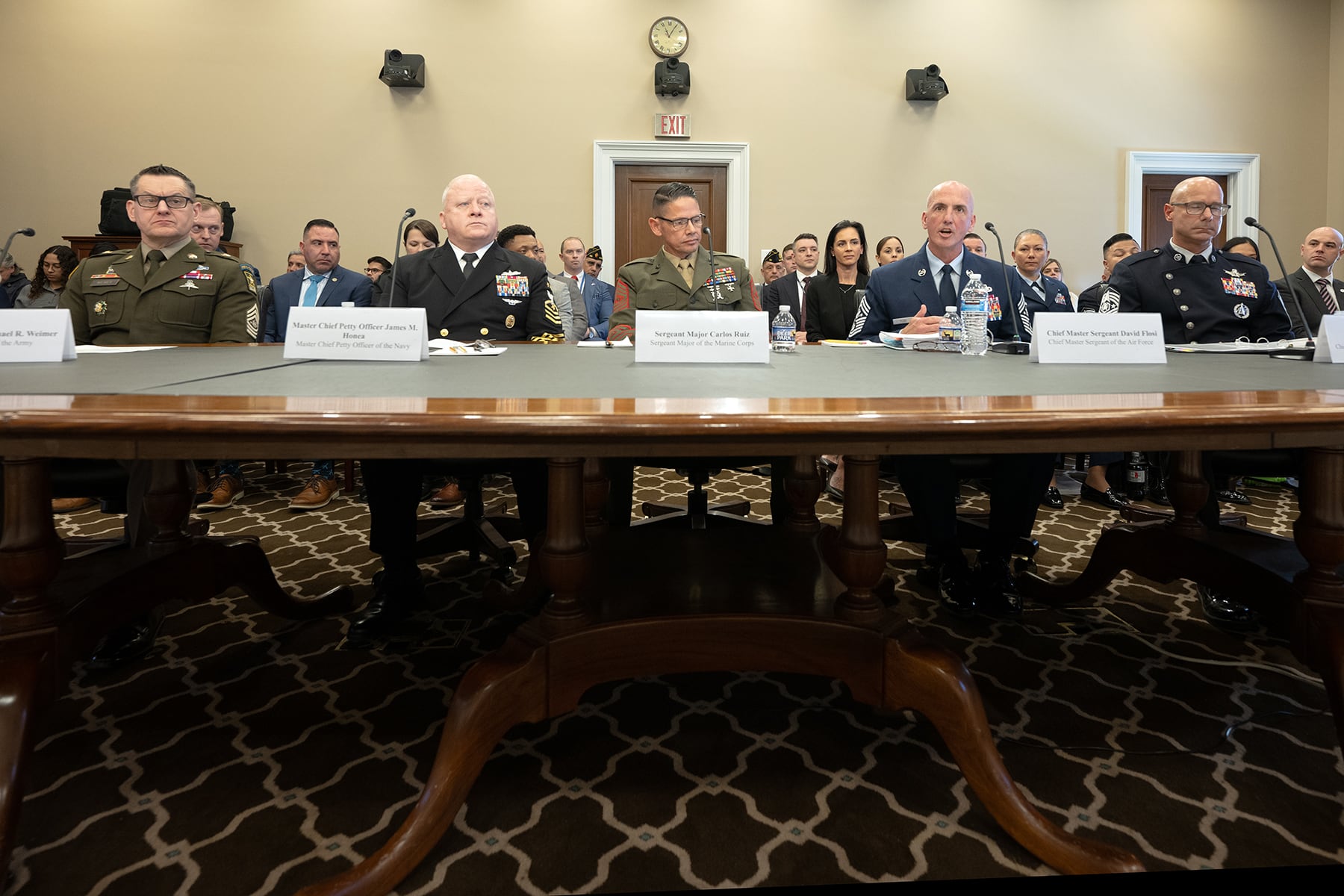Military personnel officials believe troops’ quality of life has seen a noticeable uptick in the last few months thanks to congressional initiatives last year, but they still see areas in need of improvement.
However, House Democrats warned that maintaining that better standard of living may hinge on how many civilian defense employees end up out of work in the coming months due to White House efforts to trim the federal workforce.
“This administration’s assault on our federal civil service threatens the essential support programs for military families and the partnership between military and civilian personnel across our military,” said Rep. Chrissy Houlahan, D-Pa., during the House Armed Services Committee’s military personnel hearing on quality-of-life issues Wednesday.
Last year, as part of the annual defense authorization bill, House and Senate lawmakers approved a host of military quality-of-life initiatives designed to help with recruiting, retention and readiness in the ranks.
Among them were a 10% targeted pay boost for junior enlisted personnel, improvements to child care operations and hiring policies and expanded access to military medical appointments for families.
RELATED

Personnel officials testifying at the committee hearing said they have received positive feedback from troops about the changes already.
“I think the quality-of-life focus for the last year has been phenomenal,” Lt. Gen. Caroline Miller, Air Force deputy chief of staff for manpower and personnel, told lawmakers.
“Two years ago, the narrative out in the press was that if you come into the services, you’ve got terrible living conditions, terrible schools for your children and everything. I think we’ve turned the corner on a lot of that discussion.”
Vice Adm. Richard Cheeseman Jr., deputy chief of naval operations for personnel, noted the targeted pay raise in particular has drawn attention.
“I’ve heard from plenty of sailors that they enjoy the extra money,” he said.
But the military leaders also emphasized that they see continued areas for additional improvements. At the top of each service’s list were improvements to barracks and dorms, with better options and maintenance for troops’ living quarters.
“We can’t put enough new money into barracks,” said Lt. Gen. Michael Borgschulte, Marine Corps deputy commandant for manpower and reserve affairs.
Katharine Kelley, deputy chief of space operations for human capital, said despite recent improvements in military child care, Space Force personnel still have an urgent need for overnight care options, given the service’s unique missions.
And all of the service officials promised plans to continue building up family services and base support options for troop to ensure recent quality-of-life advances continue.
But Democratic lawmakers noted operating those services will likely require continued hiring of civilian support personnel, which may not happen under workforce cuts planned by the White House.
“Civilian workers maintain an important role for us, and for our readiness,” said Lt. Gen. Brian Eifler, Army deputy chief of staff. “We are doing some reorganization because of [planned reductions]. That’s something we’re looking closely at to make sure we don’t have a gap in our coverage as far as the mission is concerned.”
About 16,000 Army civilian employees, 12,000 Air Force civilian workers and 1,600 Marine Corps civilian staff have agreed to deferred resignation plans, officials said. Navy and Space Force officials expect to lose about 10% of their civilian staff through those same plans.
Houlahan and other Democrats expressed concerns that those cuts could have a severe impact on child care staffing, medical offices and family support programs, even though some of those areas have been exempted from a department-wide hiring freeze.
“We are literally, in some cases, firing or removing people, and then we’re figuring out what to do about it,” Houlahan said. “It’s just astounding.”
Service officials said they have not yet seen negative impacts from the planned and potential civilian workforce cutbacks, but will be monitoring the issue closely in coming months.
“We’re looking at the impacts of what losing these individuals is and then restructuring as appropriate to handle that challenge,” Borgschulte said.
Leo covers Congress, Veterans Affairs and the White House for Military Times. He has covered Washington, D.C. since 2004, focusing on military personnel and veterans policies. His work has earned numerous honors, including a 2009 Polk award, a 2010 National Headliner Award, the IAVA Leadership in Journalism award and the VFW News Media award.




